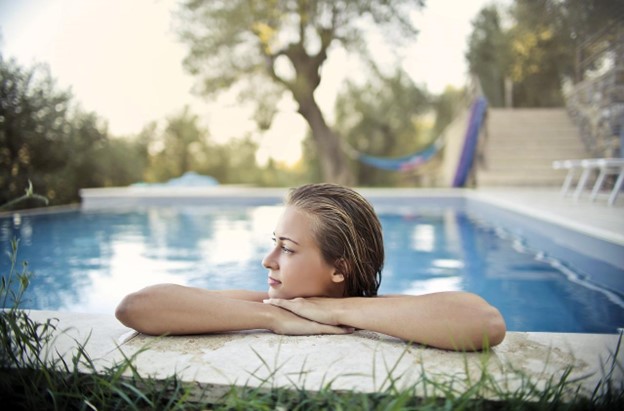Summer is in full swing, and many families are eagerly planning their long-awaited vacations. Whether you’re heading to a tropical paradise or enjoying a staycation, one thing remains constant: the allure of swimming pools. While these shimmering blue waters offer endless fun and relaxation, it’s crucial to prioritize safety, especially when it comes to protecting yourself and your loved ones. In this blog post, we will explore essential tips and guidelines to ensure a safe and enjoyable experience around swimming pools during your vacation. From basic precautions to advanced safety measures, let’s dive into the world of swimming pool safety and make your vacation truly worry-free.
Understand the Pool Safety Basics
Understanding the pool safety basics is essential for a safe and enjoyable swimming experience during your vacation. Familiarize yourself with the pool’s rules and regulations, including any age restrictions or specific guidelines for pool usage. Take note of the pool’s depth markings and areas designated for diving or non-swimming activities.
Additionally, inquire about the availability of lifeguards and their responsibilities. Be aware of emergency procedures, such as the location of safety equipment and how to report an incident. By understanding and following these fundamental safety guidelines, you can help ensure a worry-free time around the pool and protect the well-being of yourself and others.
Know Your Rights at the Pool
Knowing your rights at the pool is crucial for a positive experience, and in certain situations, it may be necessary to seek legal assistance if things go wrong. While rare, accidents or injuries can occur, and if negligence or misconduct is involved, consulting a lawyer specializing in personal injury or premises liability may be necessary. For instance, an experienced drowning accident lawyers in Denver can provide valuable guidance and legal representation in cases where a drowning incident has occurred due to the negligence of the pool owner, inadequate safety measures, or lack of proper supervision.
Understanding your rights includes the right to seek compensation for medical expenses, pain and suffering, and other damages resulting from a pool-related incident caused by someone else’s negligence. If you believe your rights have been violated or you require legal guidance, it’s important to consult a qualified attorney who can provide expert advice and representation.
Supervision and Adult Responsibility
Supervision and adult responsibility play a vital role in ensuring pool safety. It is crucial to have a responsible adult present and actively supervising children at all times near the pool, even when lifeguards are on duty. Designate a “water watcher” who is solely focused on monitoring the pool and preventing accidents. Avoid distractions such as phone use or excessive socializing, as it only takes a moment for an incident to occur.
Adults should be aware of each child’s swimming abilities and comfort level in the water, and take necessary precautions accordingly. By maintaining constant supervision, adults can minimize risks and respond promptly to any emergencies that may arise.
Swimming Ability Assessment
Before entering the pool, it is important to assess your swimming ability and that of your family members. Be honest about your own skills and limitations in the water, as well as those of your loved ones. If you or someone in your group is not a confident swimmer, it is advisable to stay within shallow or designated areas. Avoid venturing into deep or challenging parts of the pool without proper skills and experience.
Consider taking swimming lessons or hiring a certified swim instructor to improve your abilities. By accurately assessing swimming abilities, you can make informed decisions and prioritize safety while enjoying your time in the pool.
Proper Use of Pool Floatation Devices
When using pool flotation devices, it is essential to ensure their proper use for a safe and enjoyable experience. Firstly, choose flotation devices that are approved and appropriate for the age and size of the individual using them. Ensure that the devices fit snugly and securely without restricting movement or causing discomfort. Remember, flotation devices should never replace active adult supervision.
Constantly monitor individuals wearing flotation devices, especially children, to prevent accidents or potential dangers. It is also crucial to follow any specific guidelines provided by the manufacturer regarding maintenance, weight limits, and usage restrictions. By using flotation devices correctly, you can enhance safety and confidence in the pool.
Use Sun Protection
Sun protection is paramount when spending time around swimming pools to safeguard your skin and overall health. Start by applying a broad-spectrum sunscreen with a high SPF to all exposed skin, including frequently overlooked areas like ears, neck, and feet. Remember to reapply sunscreen every two hours or more frequently if you’ve been swimming or sweating. Additionally, wear a wide-brimmed hat to shield your face, scalp, and neck from direct sunlight.
Don a pair of UV-protective sunglasses to shield your eyes from harmful UV rays. Seek shade during the peak sun hours, typically between 10 am and 4 pm, to reduce sun exposure. By prioritizing sun protection, you can fully enjoy your time at the pool while minimizing the risk of sunburn and other sun-related concerns.
Follow Pool Rules and Etiquette
To ensure a harmonious and safe environment, it is crucial to follow pool rules and practice proper pool etiquette. Familiarize yourself with the specific rules and regulations of the pool facility, such as restrictions on diving, running, or the use of glass containers. Respect other pool users by adhering to guidelines on noise levels, personal space, and appropriate behavior. Take turns on water slides and avoid hogging or monopolizing pool equipment.
Additionally, be mindful of cleanliness by disposing of trash in designated areas and refrain from bringing food or drinks into the pool itself. By following pool rules and practicing good etiquette, you contribute to a positive experience for everyone enjoying the pool.
Know CPR and Emergency Procedures
Knowing CPR (Cardiopulmonary Resuscitation) and being familiar with emergency procedures is essential for pool safety. Enroll in a certified CPR course to learn how to respond effectively in case of a drowning or other water-related emergencies. Familiarize yourself with the location of first aid kits, emergency phones, and rescue equipment around the pool area.
Understand the pool’s specific emergency procedures, including how to alert lifeguards or pool staff in case of an incident. Stay calm and be prepared to provide immediate assistance if needed. By being knowledgeable about CPR and emergency protocols, you can help save lives and ensure a swift response to any pool-related emergencies.
Ensuring a safe and enjoyable experience around swimming pools during your vacation requires adherence to essential tips and guidelines. By understanding pool safety basics, supervising children, assessing swimming abilities, using flotation devices properly, practicing sun protection, following pool rules and etiquette, and knowing CPR and emergency procedures, you can minimize risks and promote a positive pool experience. Remember, prioritizing safety and being aware of your surroundings contribute to a memorable and worry-free time by the pool. Enjoy your vacation and make lasting memories in the water!
















